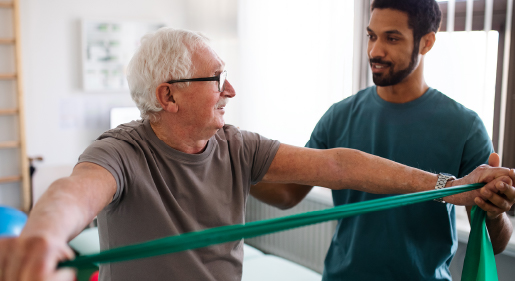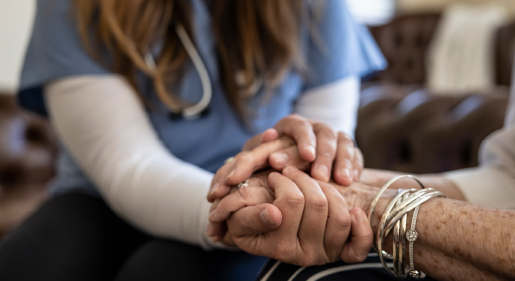
Support Services
In addition to receiving medical treatment for your cancer, getting the physical, emotional, practical and spiritual support you need is also important.
Your support services team works closely with other teams and departments to offer you expert compassionate support and care. Your cancer care center may offer some or all of the support resources in this section. Whenever you have questions, please ask. We’re here to help promote health, wellness and healing as you and your circle of support—family, friends and loved ones—cope with the challenges of cancer.
Supportive Counseling
Psychotherapists are available to patients, families and caregivers. We offer hope, education, coping skills and support for:
- Understanding the range and intensity of your emotional reactions.
- Managing cancer-related anxiety or depression.
- Helping cope with the side effects of treatment.
- Managing the impact of cancer on your life and relationships.
- Exploring values and spirituality.
- Coping with fatigue and difficulty sleeping.
- Building a sense of control by teaching skills, such as guided imagery, relaxation or self-hypnosis.
If you’re seeking counseling or psychiatric treatment, check with your health insurance provider about your plan’s coverage and benefits for mental health services.
Social Work
An oncology social worker is involved in evaluating your needs and helping you address questions or concerns about:
- Financial programs
- Emotional support
- Community resources
- Access to meals
- Transportation
- Health insurance
- Help at home
- Caregiver support
Professionally trained and licensed by the state of Wisconsin, our experienced social workers can help you and your family cope effectively with various life changes that may occur with a cancer diagnosis.
Classes & Support Groups
We’ve found people feel better and recover faster when they have appropriate education and support. Educational classes, groups and series are offered. Talk to any member of your care team to learn more about the classes and support groups we offer or view our support group calendar.
Download the List of Cancer Communities View Calendar of EventsNutritional Support
If you have specific questions about nutrition and cancer, talk to your care team. A registered dietitian nutritionist (RDN) is available to provide nutrition counseling for a wide range of needs, such as dealing with side effects, managing weight changes and navigating nutrition recommendations. RDNs offer suggestions for meal planning and coping with problems, such as decreased appetite and weight changes, and overall guidelines for nutrition and cancer. Your doctor can order a nutrition consult. Talk with your care team about scheduling an appointment.
Alternative Therapies
Massage Therapy
There is evidence that massage therapy may help improve a cancer patient’s quality of life both physically and emotionally.
People often use massage therapy to help reduce muscle soreness and stiffness. It can also help reduce pain, such as headaches and low back pain, anxiety and stress. It improves circulation and promotes relaxation and a sense of well-being. Studies have shown that massage therapy can help reduce stress, anxiety, pain, fatigue and depression. It can also help with problems sleeping (insomnia), improve sleep quality and reduce nausea.
Some benefits of massage therapy during cancer treatment include:
- Better ability to tolerate cancer treatment side effects
- Better sleep
- Fewer headaches
- Less chemotherapy-induced peripheral neuropathy (numbness)
- Less chemotherapy-related nausea
- Less chronic pain either from the cancer itself or treatment
- Less stress and anxiety
Music Therapy
Much like massage therapy, music therapy engages patients in music activities that help address the physiologic and psycho-emotional aspects of cancer treatment. Our music therapist work with you to promote your healing and well-being.
Participating in music therapy sessions may help:
- Assist in relaxation
- Induce positive mood and emotions
- Help maintain executive function and other cognitive skills
- Provide opportunities for creative and artistic self-expression
- Reduce pain, nausea, and discomfort
- Reduce stress and anxiety



